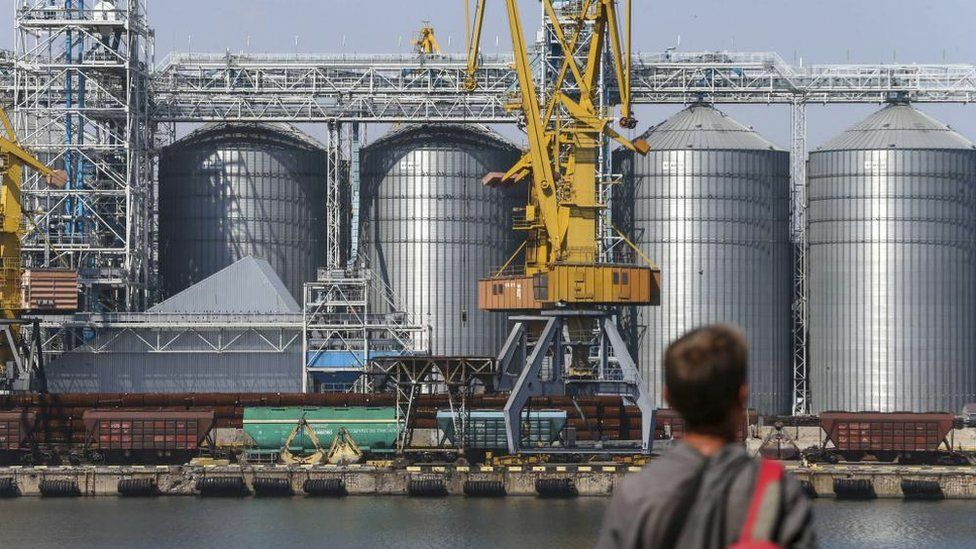Ukraine blamed for ammonia pipeline blast, threatens Russian grain deal

Russia has accused Ukraine of being responsible for an explosion on a crucial ammonia pipeline, stating that it could negatively impact the renewal of a significant grain export agreement. The Togliatti-Odesa pipeline was damaged in a blast on Monday, which Moscow attributes to Ukrainian “sabotage” groups. The Kremlin has declared that it will not renew last year’s grain export deal with Kyiv unless the pipeline is functional.
Ukrainian President Volodymyr Zelensky, however, has denied these allegations, suggesting that the explosion was more likely a result of Russian shelling. Before the war, the 2,500-kilometre pipeline, running from the Russian city of Togliatti to three Black Sea ports in southern and western Ukraine, exported 2.5 million tonnes of ammonia annually. The pipeline ceased operations following Russia’s invasion of Ukraine in February 2022.
In talks to secure grain exports from Ukraine last year, Kyiv and Moscow agreed on the safe passage of ammonia through the pipeline, a crucial component in fertiliser production. The significant deal, mediated by the UN and Turkey, was initially agreed upon in June 2022 for 120 days and has been extended three times since. The current agreement is set to expire on 17 July.
Kremlin press secretary Dmitry Peskov told reporters that the blast could only have a negative impact on the renewal of the deal, adding that the situation is complicated. Russian foreign ministry spokesperson Maria Zakharova stated that it would take between one and three months to repair the damage to the pipeline. However, Industry and Trade minister Denis Manturov said that Moscow has no access to the damaged section.
Ukraine has firmly denied any involvement in the explosion, insisting that Russia orchestrated the attack. President Zelensky highlighted the difference between the pipeline explosion and the blast at the Khakovka dam, calling the latter an act of terrorism.
In other news, Russian pro-war bloggers have speculated that a long-awaited Ukrainian counteroffensive has begun in the southern region of Zaporizhzhia. Andrey Rudenko, a correspondent for Russian state television channel Rossiya 24, claimed that Ukrainian tanks had launched attacks on Russian lines in the region, which were subsequently repelled. Russian-installed governor of occupied Zaporizhzhia, Vladimir Rogov, also believed that there had been an attempted full-scale offensive in the region.
However, Oleksiy Danilov, the secretary of Ukraine’s national security council, denied these reports and assured that when Kyiv launches an offensive, “everyone will know about it”. Senior US officials have previously informed the BBC’s US partner CBS News that the opening phases of the Ukraine counteroffensive are accurate, but the main thrust has not yet begun.
Latest Thailand News
Follow The Thaiger on Google News:


























